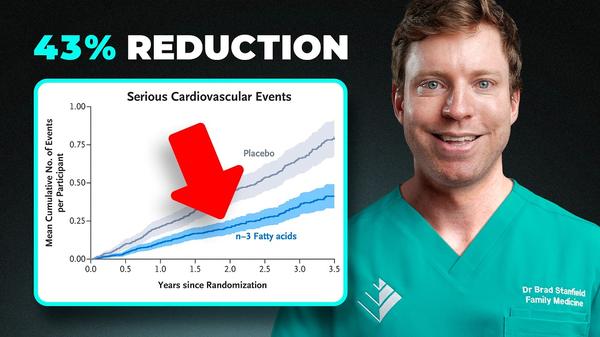
Taurine: A Savior against Metabolic Syndrome… or is it?
Physionic
Oct 16, 2024
Mindsip insights from this episode:
Determine effective taurine dosage between 0.5 to 6 grams daily
The studies analyzed used a wide range of taurine doses, from 0.5 grams to 6 grams per day, to achieve their effects.
Utilize taurine to relax blood vessels and improve circulation
By increasing hydrogen sulfide, taurine helps potassium leak out of smooth muscle cells, making them more negative and less likely to contract, thus keeping blood vessels relaxed.
Boost hydrogen sulfide production with taurine
Taurine doesn't convert into hydrogen sulfide itself, but rather increases the production of enzymes that create this beneficial molecule from other amino acids.
Utilize taurine to support blood pressure reduction through hydrogen sulfide production
Taurine may lower blood pressure not directly, but by increasing your cells' production of hydrogen sulfide, a molecule that helps relax blood vessels.
Supplement taurine to lower blood pressure, blood sugar, and triglycerides
In a meta-analysis, taurine supplementation showed a mild protective effect, reducing blood pressure by about 4 points, blood sugar by almost 6 points, and triglycerides by 18 points.
Critique methodological flaws in taurine meta-analysis
The reviewed meta-analysis is weakened by methodological issues, such as mixing different types of control groups and failing to analyze if specific subgroups benefited more than others.
More from
Physionic
Dr. Casey Means: Eat like THIS to reduce your Risk of Metabolic Disease!
Ketosis (Fasting/Ketogenic Diet) accelerates Cancer Growth - New Study
Drain your Brain, Protect it from Alzheimer’s Disease
Dr. Casey Means: Stop Ignoring Your Health — Do These 5 Free Tests!
Soda & Cancer Death: The Link Found in Multiple Large Studies














